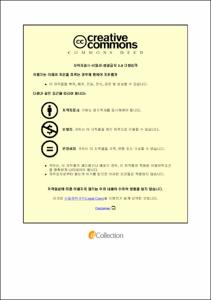Impact of Product Quality, Service Quality, Contextual Experience, and Locational Accessibility on Customer Satisfaction and Repurchase Intention for Convenience Retail Shops
- Abstract
- The rapid growth in competition among all types of retail business has posed several challenges for them regarding maintaining their customers and achieving business objectives that is focus with exchange relationship with customers that could yield greater business profits in the long term. For this reason, focusing on customer re-purchase intention has become very important for improving retail business performance and competitiveness. Recognizing that high satisfaction leads to repurchase intention, companies today are aiming for total customer satisfaction, for this reason this article explains the relative impact of product quality, service quality and contextual experience on customer satisfaction and intention to shop in the future. The data was collected using questionnaire that was design on Google forms with which data was collected from over 220 convenience stores customers living in Korea. The data was analyzed to measure the impact of product quality, service quality, contextual experience, and locational accessibility on customer satisfaction and customers future intentions to shop at a convenience store. The contribution of customer satisfaction to future buying intention was also measured using Structural Equation Modeling (SEM), Amos was used to estimates the overall fitness of the model. It was found that product quality, service quality and contextual experience have a major influence on customer satisfaction and re-purchase intention. Out of the five hypothesis that was analyzed three were statistically significant that is hypothesis 1, stating the relationship between product quality on consumer satisfaction, hypothesis 4, stating the relationship between locational accessibility on customer satisfaction and hypothesis 5, stating the relationship between customer satisfaction on repurchase intention. furthermore, two where statistically not significant which are hypothesis 2, stating the relationship between service quality and consumer satisfaction as well as hypothesis 3, stating the relationship between contextual experience and customer satisfaction. Managers can analyze the result of this study to make require improvements where necessary for the purpose of boasting up customer repurchase intention to shop at convenience stores.
- Issued Date
- 2021
- Awarded Date
- 2021-08
- Type
- Dissertation
- Alternative Author(s)
- Nsoh Divine Chungung
- Affiliation
- 울산대학교
- Department
- 경영대학원 경영학전공
- Advisor
- Doyle Kim
- Degree
- Master
- Publisher
- 울산대학교 경영대학원 경영학전공
- Language
- eng
- Rights
- 울산대학교 논문은 저작권에 의해 보호받습니다.
- Appears in Collections:
- Business > Business Administration
- 파일 목록
-
-
Download
 200000504296.pdf
기타 데이터 / 1.34 MB / Adobe PDF
200000504296.pdf
기타 데이터 / 1.34 MB / Adobe PDF
-
Items in Repository are protected by copyright, with all rights reserved, unless otherwise indicated.